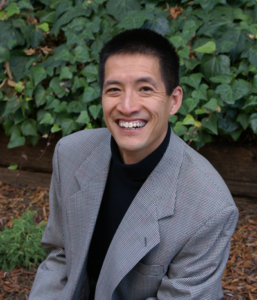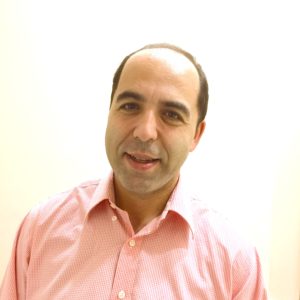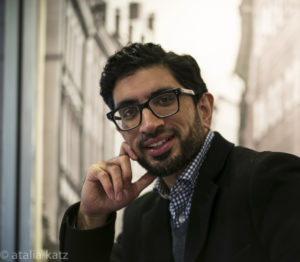critical thinking
Select an item by clicking its checkbox

Critical and Creative Thinking: A Brief Guide for Teachers
Date Reviewed: September 7, 2016
As teachers in religious studies and theology departments, one of our principal pedagogical claims is that we teach students to think critically and creatively, but we are not always clear on what this means in practical terms. This readable book by Robert DiYanni helpfully gathers research and writing from a wide variety of disciplines to help teachers define and apply critical and creative thinking for themselves. The book’s organization makes sense as it leads the reader through concepts, practical concerns, and application. Brief “interchapters” unite the flow of the book around one master of critical and creative thinking, Leonardo da Vinci. Each chapter ends with a well-crafted list of writing prompts to help the reader – both teachers and students – to apply the chapter’s concepts. For example, chapter 4 focuses on strategies and applications of critical thinking, and so the end-of-chapter prompts call on the reader to analyze arguments, evaluate scenarios, and deploy specific critical thinking strategies. Chapter 5, which examines approaches to creative thinking, provides prompts that invite imagination, innovation, and inventive solutions to problems.
Essentials of critical thinking such as asking questions, seeking clarification, gathering evidence, evaluation, and reflection are discussed at length with colorful examples from notable historical events and popular culture. For instance, one chapter features a collection of headlines and other snippets of news coverage of the murder of Kitty Genovese. DiYanni invites the reader to consider what sorts of inferences and judgments various news sources made in response to this famous case (71-74). Another section examines the methods that Sherlock Holmes used in his legendary detective work (109-112). DiYanni argues, however, that critical thinking is not sufficient by itself and can even be reductive and dangerous (xi) if it is not joined by robust creative thinking. He persuasively shows that creative thinking is a necessary adjunct to critical thinking and leads to innovation and whole-minded approaches to problems. DiYanni’s coverage of creative thinking likewise draws on a wealth of examples from creative people such as choreographer Twyla Tharp and checklist-innovator Atul Gawande.
DiYanni’s book thoroughly covers critical and creative thinking, but it may not live up completely to its subtitle, A Brief Guide for Teachers. There is not much by way of specific advice to teachers on how to teach students to be more critical and creative thinkers. Rather, the book reads like a textbook for a class whose subject matter is creative thinking itself. As such, the exercises in the book would have to be adjusted for application to religious studies and theology courses. Another small critique is that DiYanni argues early in the book that cultural forms and social locations, including religion, are “blocks” to critical thinking (10). While we can agree that people’s contexts can limit and define their worldview, religion professors know that it is not particularly helpful to consider religion as a hamper to thoughtfulness. These criticisms aside, this book is a helpful addition to the literature on critical and creative thinking, and its focus on application – even if not explicitly linked to pedagogical advice – provides welcome tools to promote critical and creative thinking in ourselves and our students.

In Defense of a Liberal Education
Date Reviewed: November 30, -0001
The argument of Fareed Zakaria’s book is precisely what the title indicates: a liberal education is worth defending. Zakaria begins by describing the oft heard opinion that studying the liberal arts, especially in an age of technology and global business, is a waste of time, and how in India, a skills-based education is valued much more than one centered on the study of history or philosophy. He himself intended to focus upon maths and sciences, but wound up a history major because of an elective course.
The book provides a brief but helpful history of liberal arts education, focused upon the United States, then turns to what Zakaria thinks is the “central virtue” (72) of such an education: it teaches one how to write, which in turn teaches one how to think. The other two main advantages of such an education are that one learns how to speak, and how to learn. Zakaria elaborates on how such abilities are requisite for obtaining a job, and important for the modern economy. He also maintains that education should be much more accessible and affordable, and that university education, at least in the United States, should be more rigorous. Thus, while extolling the importance of a liberal education, he recognizes that it is currently deeply flawed in its implementation. We need more, and better, liberal education (105).
Subsequent chapters further discuss the need for greater accessibility to higher education (Zakaria believes MOOCs can make a contribution here), and the significance of knowledge for power, especially political power. Zakaria thinks the liberal arts are crucial if we want more just societies and a fairer distribution of wealth. His final chapter is a defense of today’s youth. There have been several recent books lamenting the lack of curiosity and selfishness of young people. However, Zakaria cites surveys that indicate that concerns about being a community leader and helping others have risen among students in university, and education, poverty. and the environment are their top concerns. However, at the close of the book he grants that all of us need to spend more time thinking about the meaning of life, which is precisely what a liberal arts education encourages us to do.
Zakaria’s book is informative and engaging, and I appreciate his call to make education more accessible for those facing economic hardship. Some might find that the examples and citations from capitalist icons who endorse the liberal arts undermine other aspects of Zakaria’s argument given that one hopes (and Zakaria appears to share this hope) a liberal arts education would encourage a more reflective critique of economic systems in which people are able to amass so much wealth, often at the expense of others. Such examples might also reinforce the notion that success is measured primarily by wealth, which many dimensions of a liberal arts course of study would challenge. But those interested in a history of higher education in the United States will find this a good introduction. The more positive, or at least, sympathetic, attitude towards contemporary young people evident in the last chapter is welcome in light of how anxious and debt-ridden so many of our students are.
At the Annual Meeting of the Society of Biblical Literature last year, the Student Advisory Board organized an interesting session titled, “What I’m Telling My Students.” I find this a wonderful question for every faculty to consider. I would tell my students to write more because writing clarifies one’...
I remember how dumbfounded I was the first time a student told me he had grown up believing Catholics were not Christian. He had never, moreover, heard of the Orthodox Church, the only form of Christianity recognized by most Muslims in the region I study, (Central Asia). This encounter proved ...
Every translation is an interpretation. This statement is especially true with regard to the Quran, since, according to Muslims, a translation of the Quran is not the actual Quran - just one interpretation among many. The Arabic Quran contains the actual words of God. Selecting an English translation of the ...


